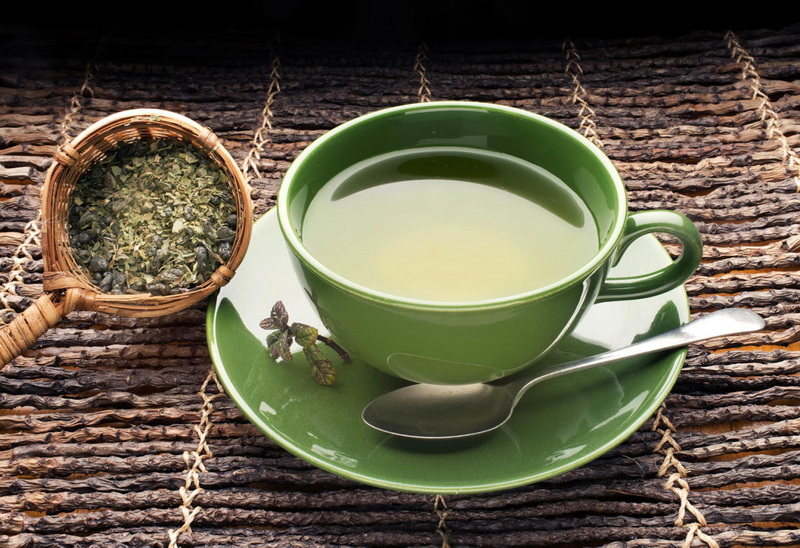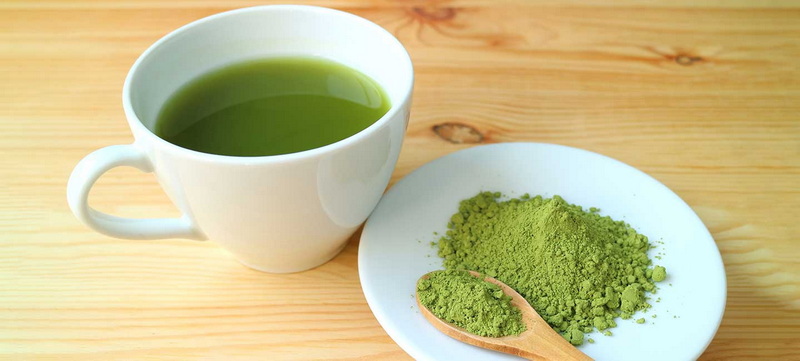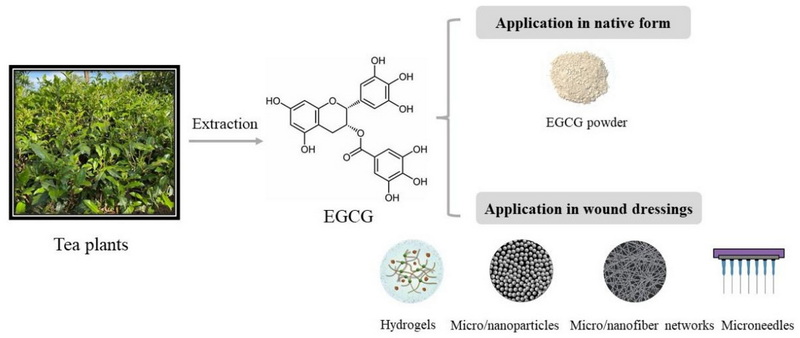Content Menu
● Understanding Blood Pressure
● The Role of Green Tea Extract
>> Mechanisms Behind Blood Pressure Reduction
● Scientific Evidence on Green Tea and Blood Pressure
● Factors Influencing the Effectiveness of Green Tea
● Practical Implications
● Additional Health Benefits of Green Tea
● Risks and Side Effects
● Conclusion
● FAQ
>> 1. How much green tea should I drink daily for optimal benefits?
>> 2. Can I take green tea extract supplements instead?
>> 3. Are there any side effects associated with drinking too much green tea?
>> 4. Does the temperature of the tea affect its benefits?
>> 5. Can I rely solely on green tea for managing high blood pressure?
● Citations:
Green tea, derived from the leaves of the Camellia sinensis plant, has been consumed for centuries, particularly in Asia, for its numerous health benefits. Among these benefits, its potential impact on blood pressure has garnered significant attention in recent years. This article delves into the effects of green tea extract on blood pressure, exploring scientific studies, mechanisms of action, and practical implications.

Understanding Blood Pressure
Blood pressure (BP) is the force exerted by circulating blood against the walls of blood vessels. It is measured in millimeters of mercury (mmHg) and is expressed as two numbers: systolic (the pressure during heartbeats) over diastolic (the pressure between heartbeats). Normal blood pressure is generally considered to be around 120/80 mmHg. Elevated blood pressure can lead to serious health issues, including heart disease, stroke, and kidney problems.
The Role of Green Tea Extract
Green tea extract is rich in polyphenols, particularly catechins such as epigallocatechin gallate (EGCG). These compounds are known for their antioxidant properties and potential health benefits, including cardiovascular health. Studies have suggested that regular consumption of green tea may lower both systolic and diastolic blood pressure.
Mechanisms Behind Blood Pressure Reduction
1. Vasodilation: Green tea may enhance the production of nitric oxide (NO), a molecule that helps relax and widen blood vessels, thereby reducing blood pressure.
2. Antioxidant Effects: The antioxidants in green tea can reduce oxidative stress and inflammation, which are linked to hypertension.
3. Improved Lipid Profiles: Green tea has been shown to lower levels of LDL cholesterol and triglycerides, reducing overall cardiovascular risk.
4. Regulation of Hormones: Catechins may influence the renin-angiotensin system, which plays a crucial role in regulating blood pressure.
5. Endothelial Function: Green tea consumption has been associated with improved endothelial function, which is vital for maintaining vascular health. Studies have shown that drinking green tea can enhance the dilation of blood vessels, thereby improving circulation and reducing blood pressure [7].
Scientific Evidence on Green Tea and Blood Pressure
Numerous studies have investigated the effects of green tea on blood pressure:
- A meta-analysis involving 24 trials with nearly 1700 participants found that green tea significantly lowered systolic blood pressure by approximately 1.17 mmHg and diastolic pressure by about 1.24 mmHg [22].
- Another systematic review indicated that daily consumption of 5-6 cups of green tea could lead to reductions in systolic blood pressure by about 2-3 mmHg [8].
- Specific studies have shown that individuals with prehypertension or hypertension benefit most from green tea consumption, with reductions in systolic pressure observed between 2-4 mmHg [3].
Factors Influencing the Effectiveness of Green Tea
The effectiveness of green tea extract can vary based on several factors:
- Dosage: Higher doses of catechins are generally associated with more pronounced effects on blood pressure. Studies suggest that around 200 mg of EGCG daily is effective [10].
- Duration of Consumption: Long-term consumption (over 12 weeks) tends to yield better results compared to short-term intake [22].
- Individual Health Status: Individuals with existing hypertension or cardiovascular risk factors may experience greater benefits compared to those with normal blood pressure [12].
Practical Implications
For individuals looking to manage their blood pressure through dietary means, incorporating green tea into their daily routine may be beneficial. Here are some practical tips:
- Daily Intake: Aim for 3-6 cups of green tea per day to maximize potential health benefits.
- Quality Matters: Choose high-quality loose-leaf green tea or reputable brands of green tea extract supplements.
- Monitor Effects: Keep track of any changes in your blood pressure readings after incorporating green tea into your diet.

Additional Health Benefits of Green Tea
Beyond its effects on blood pressure, green tea offers a myriad of other health benefits:
1. Weight Management: Green tea extract has been shown to aid in weight loss by increasing metabolism and fat oxidation [15].
2. Cancer Prevention: The antioxidants in green tea may help protect against certain types of cancer due to their ability to scavenge free radicals and reduce oxidative stress [6].
3. Diabetes Management: Regular consumption may improve insulin sensitivity and lower blood sugar levels [11].
4. Mental Health: Some studies suggest that the L-theanine present in green tea can promote relaxation without drowsiness, potentially aiding in stress management [15].
5. Liver Health: Green tea may offer protective effects against liver diseases due to its antioxidant properties [18].
Risks and Side Effects
While green tea is generally safe for most people when consumed in moderation, excessive intake can lead to side effects such as:
- Nausea
- Insomnia
- Headaches
- Dizziness
- Liver problems (in rare cases)
It is advisable to consume green tea with food to minimize gastrointestinal discomfort and avoid high doses that could lead to adverse effects [14][26].
Conclusion
Green tea extract appears to have a modest but significant effect on lowering blood pressure, particularly in individuals with prehypertension or hypertension. The polyphenols present in green tea contribute to this effect through various mechanisms such as vasodilation and antioxidant activity. While more research is needed to establish definitive guidelines, incorporating green tea into a balanced diet may serve as a complementary approach to managing blood pressure.

FAQ
1. How much green tea should I drink daily for optimal benefits?
Aim for 3-6 cups per day for potential cardiovascular benefits.
2. Can I take green tea extract supplements instead?
Yes, but ensure they contain sufficient catechins (around 200 mg) for effectiveness.
3. Are there any side effects associated with drinking too much green tea?
Excessive consumption can lead to caffeine-related side effects such as insomnia or increased heart rate.
4. Does the temperature of the tea affect its benefits?
Generally, both hot and cold green teas offer similar health benefits; however, hot teas might release more beneficial compounds.
5. Can I rely solely on green tea for managing high blood pressure?
Green tea can be a helpful addition but should not replace prescribed medications or lifestyle changes recommended by healthcare professionals.
Citations:
[1] https://pmc.ncbi.nlm.nih.gov/articles/PMC6412948/
[2] https://pmc.ncbi.nlm.nih.gov/articles/PMC2748751/
[3] https://pubmed.ncbi.nlm.nih.gov/36689359/
[4] https://www.rxlist.com/green_tea/generic-drug.htm
[5] https://www.drugs.com/npp/green-tea.html
[6] https://pmc.ncbi.nlm.nih.gov/articles/PMC2855614/
[7] https://www.escardio.org/The-ESC/Press-Office/Press-releases/The-benefits-of-green-tea-in-reducing-an-important-risk-factor-for-heart-disease
[8] https://www.cebm.ox.ac.uk/research/projects/green-tea-and-blood-pressure-effects
[9] https://www.drugs.com/mtm/green-tea.html
[10] https://examine.com/supplements/green-tea-extract/
[11] https://www.medicalnewstoday.com/articles/269538
[12] https://www.health.harvard.edu/heart-health/green-tea-may-lower-heart-disease-risk
[13] https://www.nature.com/articles/srep06251
[14] https://www.webmd.com/drugs/2/drug-76714/green-tea-leaf-extract-oral/details
[15] https://www.healthline.com/nutrition/10-benefits-of-green-tea-extract
[16] https://www.ahajournals.org/doi/10.1161/JAHA.122.026477
[17] https://www.frontiersin.org/journals/nutrition/articles/10.3389/fnut.2022.1084455/full
[18] https://www.vumc.org/poison-control/toxicology-question-week/march-12-2021-what-are-adverse-effects-green-tea-extract
[19] https://pubmed.ncbi.nlm.nih.gov/26093535/
[20] https://hsph.harvard.edu/news/green-tea-healthy-habit/
[21] https://www.mdpi.com/2076-3921/8/6/166
[22] https://journals.lww.com/md-journal/fulltext/2020/02070/effect_of_green_tea_supplementation_on_blood.36.aspx
[23] https://medsafe.govt.nz/profs/PUArticles/Complementary%20Medicine%20Corner%20-%20Safety%20of%20Green%20Tea%20extracts.htm
[24] https://www.canada.ca/en/health-canada/services/food-nutrition/public-involvement-partnerships/notice-modification-list-permitted-supplemental-ingredients-permit-use-green-tea-extract-supplemental-ingredient-foods/document.html
[25] https://health.clevelandclinic.org/green-tea-extract-a-better-way-to-boost-energy-or-not
[26] https://pmc.ncbi.nlm.nih.gov/articles/PMC7009618/
[27] https://pmc.ncbi.nlm.nih.gov/articles/PMC7922336/
[28] https://www.urmc.rochester.edu/encyclopedia/content?contenttypeid=19&contentid=greenteaextract
[29] https://efsa.onlinelibrary.wiley.com/doi/10.2903/j.efsa.2018.5239
[30] https://www.webmd.com/vitamins/ai/ingredientmono-960/green-tea






























